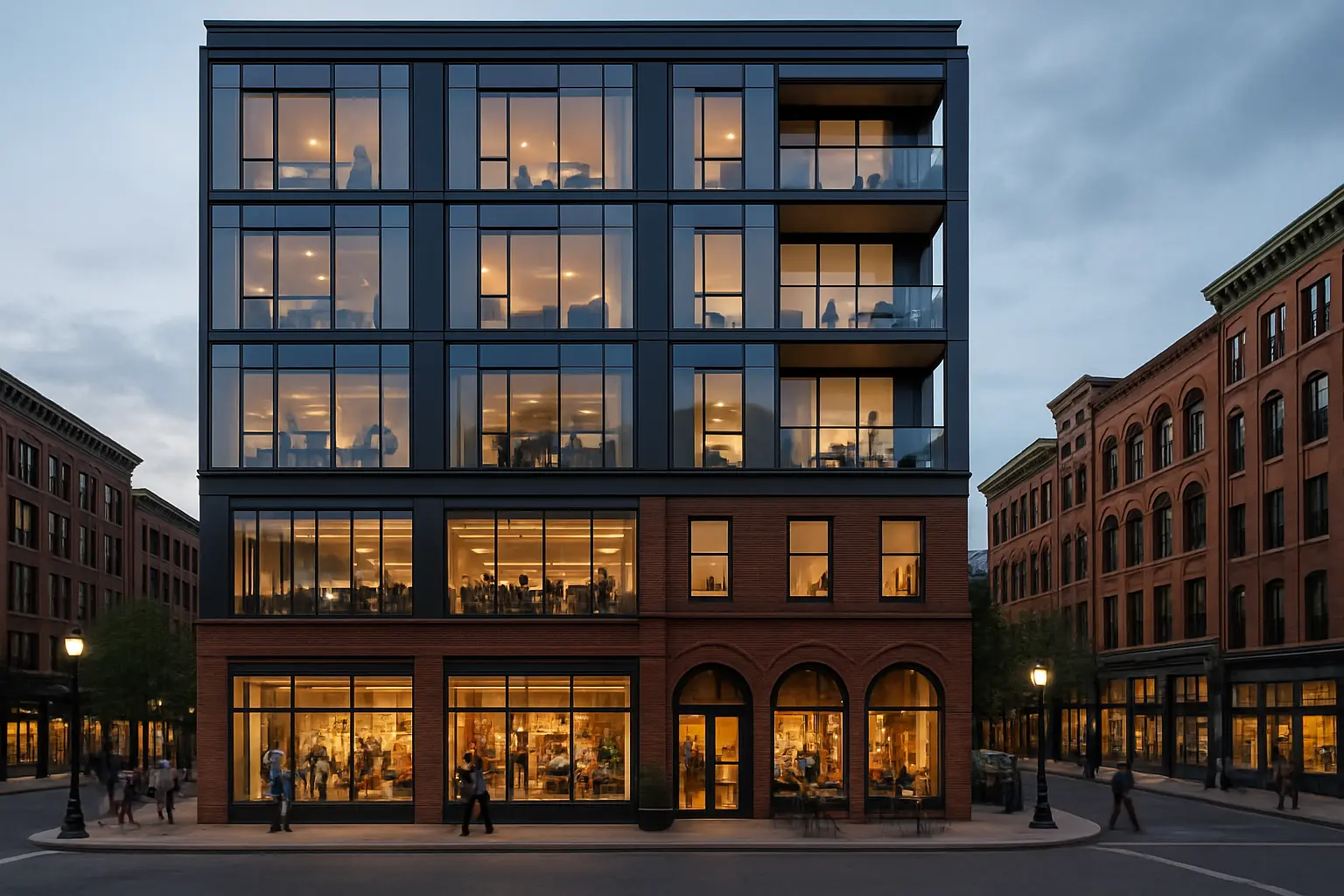From Office to Home: Boston's Revolutionary Mixed-Use Property Transformation
Discover how the fusion of commercial and residential spaces is reshaping Boston's real estate landscape and creating unique investment opportunities.

The Evolution of Boston's Mixed-Use Properties
Boston's real estate landscape is undergoing a remarkable transformation as the city embraces the concept of mixed-use properties with unprecedented enthusiasm. The shift from traditional single-purpose buildings to dynamic spaces that combine residential and commercial elements represents a response to evolving urban lifestyle preferences and changing work patterns.
In the heart of historic districts and emerging neighborhoods alike, former office buildings are being reimagined as vibrant communities where people can live, work, and play without leaving their building. This transformation is driven by several key factors:
- Remote Work Revolution: The sustained adoption of flexible work arrangements has created demand for spaces that blur the line between home and office
- Urban Lifestyle Demands: Young professionals and empty nesters alike seek convenient, amenity-rich living environments
- Sustainability Focus: Adaptive reuse of existing structures aligns with Boston's environmental goals
Prime Locations and Market Analysis
Several Boston neighborhoods have emerged as hotspots for mixed-use development, each offering unique advantages for investors:
High-Demand Districts
- Seaport District: Leading the charge with innovative waterfront developments
- Back Bay: Historic charm meets modern convenience
- Cambridge: Tech-driven transformation near major universities
Market indicators show strong demand for these properties, with occupancy rates consistently exceeding 95% and rental premiums 15-20% higher than traditional single-use properties.
Benefits and ROI Potential
Mixed-use properties offer compelling advantages for investors:
- Diversified Income Streams: Revenue from both residential and commercial tenants provides financial stability
- Enhanced Property Values: Mixed-use properties typically appreciate faster than single-use buildings
- Risk Mitigation: Multiple revenue sources help buffer against market fluctuations
"Mixed-use properties represent the future of urban real estate, offering superior returns while meeting the evolving needs of city residents."
Future-Proofing Your Investment
Success in mixed-use property investment requires careful consideration of several factors:
Strategic Considerations
- Location Analysis: Proximity to public transit, amenities, and employment centers
- Flexible Design: Spaces that can adapt to changing market demands
- Community Integration: Properties that enhance and connect with their neighborhoods
Investors should focus on properties that offer:
- Adaptable floor plans that can accommodate different uses over time
- Modern technology infrastructure to support remote work
- Energy-efficient systems to reduce operating costs
- Community spaces that foster interaction and engagement
As Boston continues to evolve, mixed-use properties represent not just an investment opportunity but a fundamental shift in how urban spaces are utilized. The successful integration of residential and commercial elements creates vibrant, sustainable communities that promise strong returns for forward-thinking investors.


